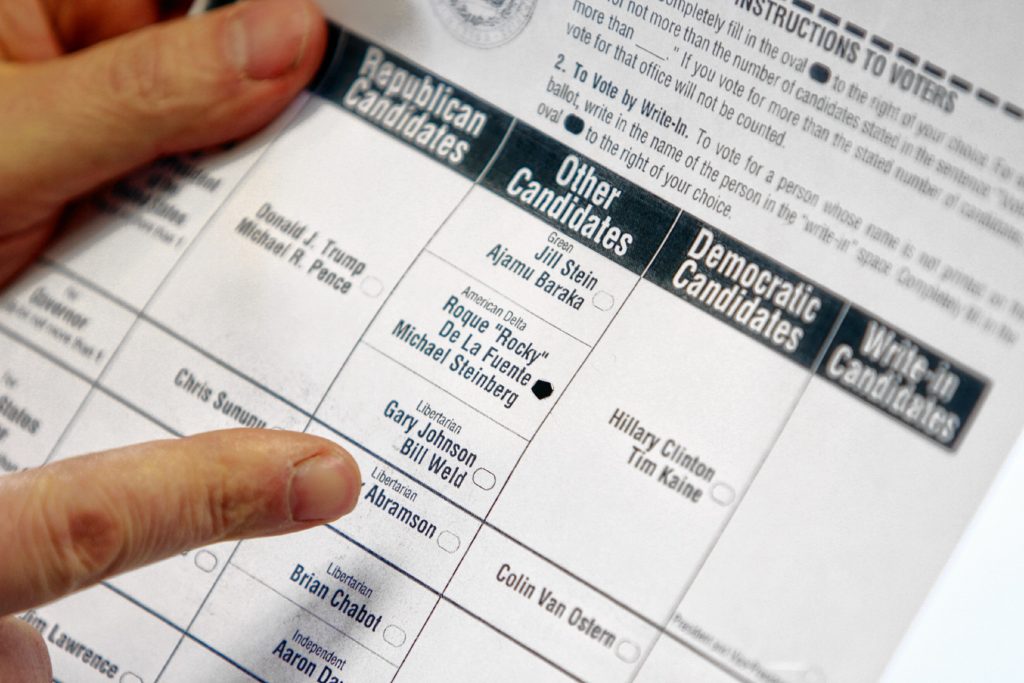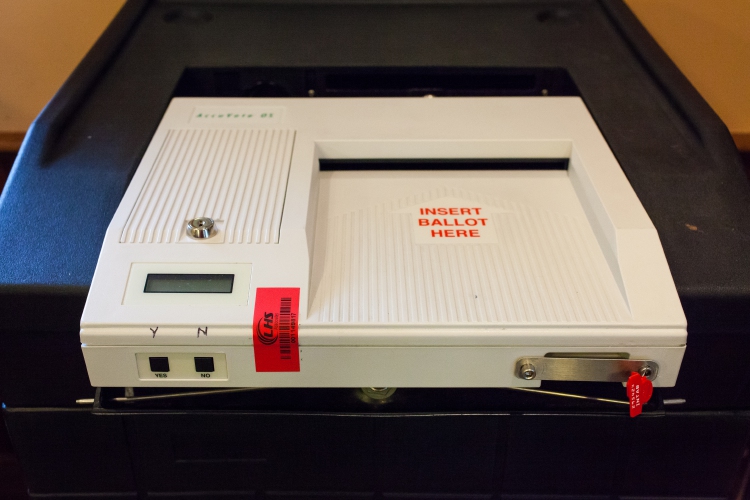New Hampshire requires voters to fill in little circles on the ballot when voting for public office, sort of like answering questions on the SAT. (Assuming they still do that – it’s been a loooooong while since I took the SAT.) Then you run the paper ballot through a machine which tallies the result or, if you live in a small town like mine, put it in a box so it can be hand-counted after the polls close.

This strikes digital devotees as being inefficient and old-fashioned; there have long been arguments that we should switch to digital-only touch screens. Election officials have long pushed back, saying that a paper trail is necessary to recount results if necessary and to keep voter trust in the system.
I have always agreed with that point of view and the seemingly endless series of hacks and manipulations of databases just underscores it. Now, as I learned from Technology Review, one company that makes digital voting systems have seen the light:
Tom Burt, Election Systems & Software’s chief executive, said in an op-ed in the political newspaper Roll Call that it will no longer sell paperless voting machines as the primary voting device in jurisdictions. Burt also called on Congress to make paper backups mandatory for all electronic votes cast, and to require all voting equipment suppliers to submit their machines to robust cybersecurity testing.
About time, buddy.


 Return to the Concord Monitor
Return to the Concord Monitor